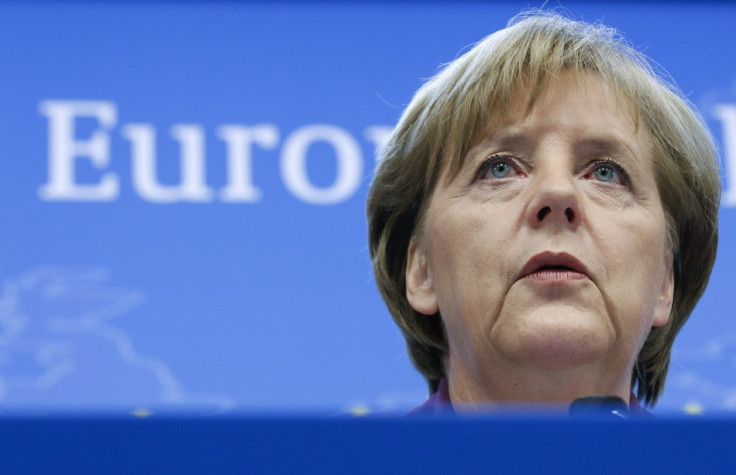EU Summit: Expect More Hot Air from Angela Merkel and Europe's Leaders
The collective deep breath by EU leaders ahead of their summit on Thursday - their seventeenth since the eurozone debt crisis intensified in 2010 - heralds not a solemn and brow-furrowing assembly of powerful politicians, but the inevitable outward guff of hot air from their concluding statement.
For two years the eurozone crisis has been snowballing downhill, and for two years summit after summit has failed to offer anything other than pseudo-commitments to do better.
This impotence would, you might think, leave the markets disappointed.
Yet in an even more damning indictment of their insignificance than mere disappointment, markets have such little regard for EU leader summits that they show indifference.
And why would they care?
"Euro area Heads of State or Government recall their determination to do whatever is needed to ensure the financial stability of the euro area as a whole, and their readiness to act accordingly," read the empty, uninspired concluding statement after the 2 March summit.
Ahead of Thursday's summit the euro has stayed flatter than eurozone growth, while leading European stock indexes were all steady and in the green, slightly up on the day by 14:40 BST.
This is because investors know not to get their hopes up, or to fear any negative outcome.

Even if the EU leaders miraculously come up with a constructive, measurable plan for improving member states' economies, they won't stick to it anyway.
Spain had to renegotiate EU-agreed deficit reduction targets as it failed to meet its original goal, while Italy has also said it will fail to comply with the rules.
The recently agreed fiscal compact treaty, which is going through ratification by each member state, has been accused of setting harsh and unachievable deficit and debt reduction goals.
Non-compliance will mean a fine, which would surely deepen the financial troubles of a country that has already failed to sufficiently reduce its deficit - it has been set up to fail.
Summits since the eurozone crisis began serve only one purpose: to allow EU leaders outside the eurozone to posture and lecture about solutions.
It means German chancellor Angela Merkel has to listen to David Cameron preach about economics from his pulpit of sovereignty, despite the alter of Britain's economy burning behind him.
In fact Britain is better placed than Germany solely by virtue of sitting outside the eurozone.
The solution to the eurozone's problem is fiscal and political unity in a federalised system under the cloak of the United States of Europe, with the mutualisation of debt across the area and a sovereign central bank operating under the guidance of a single government.
Unfortunately Merkel, who leads the financially strongest and most politically powerful country in the eurozone, has said combining the debt of each member state will not happen "as long as I live".
Until eurozone leaders bang their heads together and take this leap, or are forced into it by a catastrophic event such as the disorderly exit of an existing member state such as Greece, the crisis will deepen and deepen - and no amount of EU summits will solve it.
© Copyright IBTimes 2024. All rights reserved.






